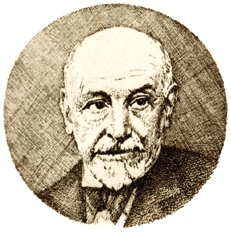...Best of Sicily presents... Best of Sicily Magazine. ... Dedicated to Sicilian art, culture, history, people, places and all things Sicilian. |
by Daniela Paglia | ||
Magazine Index Best of Sicily Arts & Culture Fashion Food & Wine History & Society About Us Travel Faqs Contact Map of Sicily |
Born in the hamlet of Caos, outside Girgenti (now Agrigento), in 1867, Pirandello is most famous for several highly "philosophical" and psychological dramas whose themes focus on questions of perceived truth and reality, and the various psychological "roles" assumed daily by ordinary people. He lived in Rome for a number of years, and many of his works were quite urbane in tone. Written in 1921, Six Characters in Search of an Author seeks to explore the relationship between reality and fantasy. Henry IV, published in 1922, is a landmark of early twentieth-century drama dealing with the complex relationships between truth and illusion. He wrote seven novels, of which the highest praised critically was The Late Mattia Pascal, published in 1904. It is thought that his family background influenced Pirandello's political views. His father's family had become wealthy through Sicily's sulphur industry, though this business collapsed in 1903. The Pirandellos lived in Palermo from 1880. Luigi's father had actively supported the unification of Italy in 1860, and had openly resented the Bourbons who ruled until the Savoys took over. The family was later disillusioned by the effects of unification, a fact reflected in several of Pirandello's works, but seems to have strongly supported the country nevertheless. There is little doubt that in many ways Pirandello was a writer ahead of his time. He received a doctorate in philology from the University of Bonn in 1891 (his affinity for Germany probably added to his respect for the Nazi and Fascist regimes), and married Antonietta three years later. His life became difficult when his wife's mental illness became evident, and physically violent, in 1904. It is thought that his marital life led him to pursue psychological themes in his work. Pirandello died in 1936. A few years earlier he had become a card-carrying Fascist. An ill-considered decision, perhaps. It may be observed that most of Fascism's worst evils (anti-Semitic laws, genocide in Ethiopia, subsequent invasions and atrocities in the Balkans) were just beginning about the time of the author's death, so we cannot know for certain whether he would have blindly supported Fascist Italy's more inhumane practices. (Emilio Segré and Enrico Fermi both left Italy about this time.) Given his views of psychology and society, it is quite possible that he would have disagreed with these policies if he knew of them, though as he neared seventy he seemed to have become slightly reactionary, and he was never a liberal. Pirandello, who won the Nobel Prize for Literature in 1934, may have become a nationalist, but he was rarely a blind conformist. And he certainly knew a thing or two about the differences between reality and fantasy. About the Author: Freelance journalist Daniela Paglia formerly taught history and Italian studies in a high school in Catania. | |
Top of Page |
 Luigi Pirandello was one of Sicily's most gifted modern authors, and
certainly one of the most prolific. His emotional challenges (often centered
on his insane wife), and occasional bouts of nationalism and even Fascism,
coloured his literature.
Luigi Pirandello was one of Sicily's most gifted modern authors, and
certainly one of the most prolific. His emotional challenges (often centered
on his insane wife), and occasional bouts of nationalism and even Fascism,
coloured his literature.